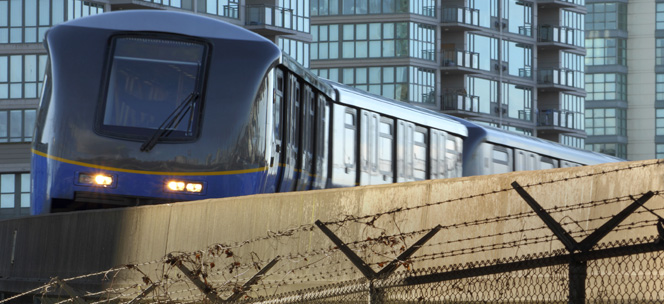OP/ED – What the NO Side Has Already Won

By Jordan Bateman
Spokesperson, No TransLink Tax Campaign
B.C. Director, Canadian Taxpayers Federation
Back in December, just before the TransLink Mayors Council voted to launch the TransLink sales tax plebiscite, I ran into one of the mayors in the hallway. “Oh Jordan,” he joked, “I was just thinking we should add an amendment to send you on a six-month vacation to Hawaii.”
It was a funny comment, but it hinted at what the mayors already knew. Despite the YES side having all the money and all the political power, they were rightfully concerned about our little NO campaign.
The No TransLink Tax campaign put up with a lot of snide comments from the YES side in those early days. “It’s only one guy who opposes this,” was a popular line among the mayors and 130 coalition partners they rolled out. We were taunted for not going along with the crowd, as if groupthink was some indication of a tax’s merits.
But we knew there were hundreds of thousands of people whose concerns about TransLink and taxation were not being represented by these groups. So, outspent 200 to 1, with a process designed by the YES side to facilitate a YES win, and down 13 points in the first poll, we went to work as massive underdogs.
Today, voting closes after six long months of campaigning. No matter the final count, the No TransLink Tax campaign has already won some key points.
Early on, Eric Woodward of the Fort Langley Business Improvement Area shared his concern as over the way the TransLink Mayors had constructed the new tax. Originally, it was going to be a separate sales tax, meaning businesses would have to file a third set of sales tax forms, spend thousands upgrading or changing cash registers, and require a whole new bureaucracy to collect it.
Once we started making political hay with those concerns, and the Canadian Federation of Independent Business and Retail Council joined in, the provincial government acted – scrapping the idea of a totally new tax and plopping the hike on to the existing PST. We made a difference.
We hammered away relentlessly at TransLink waste, using creative ways to get our message attention. This resonated with the public, many of whom had their own disappointing TransLink encounters.
In mid-February, with their poll numbers sliding, TransLink pushed CEO Ian Jarvis into a full salary advisory role. A second interim CEO was hired, at full pay. A search for a third CEO was launched.
The Jarvis move cemented what we had been saying all along: TransLink wasted too much of our money to be trusted with any more of it. The mayors’ claim that this was a “first step toward rebuilding public confidence in TransLink” was an outright admission that the organization didn’t work. We made a difference.
Many NO voters are hopeful the Jarvis move will clear the way for a new CEO to come in and change TransLink’s organizational culture. Something is broken there, and new leadership is desperately needed. But if not for the NO campaign publicizing the amount of waste and dysfunction at TransLink – much of it shared with us in brown envelopes by TransLink employees – nothing would have been done.
Our work showcasing TransLink’s dismal record led the YES side to bring out Jimmy Pattison to “oversee” their new spending. The role was simple window-dressing, but it reinforced our message: not even the YES side trusted TransLink with more money. We made a difference again.
Whatever the outcome of the vote, we are proud of our campaign and that hundreds of thousands of Lower Mainlanders had someone articulating their concerns, speaking truth to power. That’s how a healthy democracy should work.
It’s time to count the ballots. But, win or lose, the TransLink Mayors owe the taxpayers of this region a full accounting of how much tax money – including staff and other municipal resources – they spent to try and buy this vote. Surely the people paying the bills deserve at least that much respect.